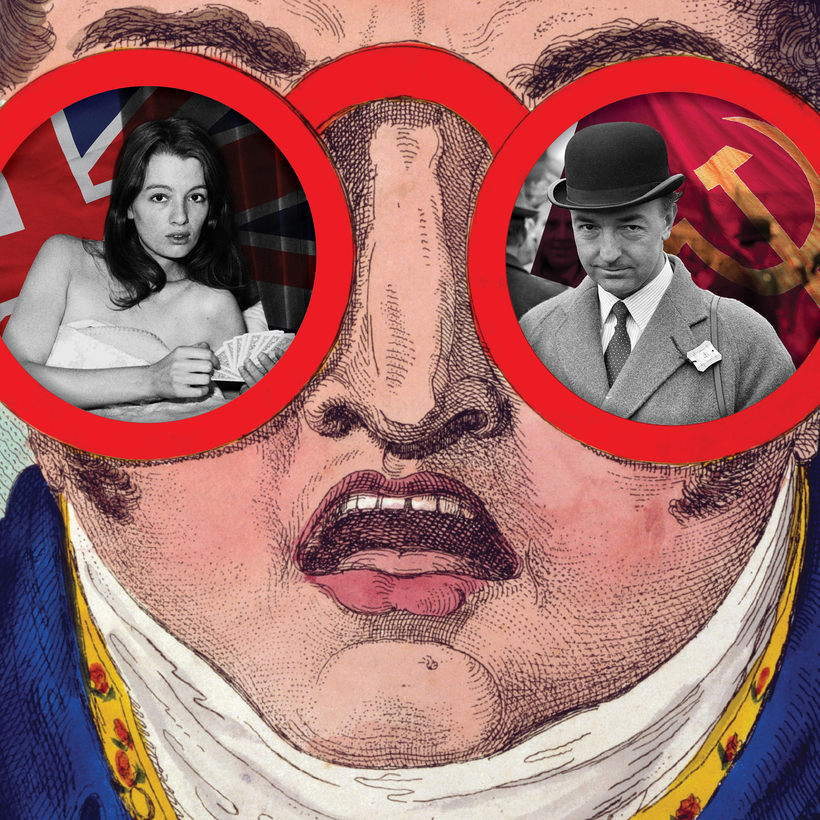Osteopath Stephen Ward’s country house on the Thames, on Lord Astor’s estate at Cliveden, Buckinghamshire, June 28, 1963. Christine Keeler was staying at the cottage in 1961, when she was introduced by Ward to the British secretary of state for war, John Profumo. Their subsequent affair led to the Profumo scandal and Profumo’s resignation. Russian spies, a sex scandal, dodgy back-channel communications with the Kremlin as the world’s two superpowers stood on the edge of nuclear war—not an untold chapter from Donald Trump’s America, but Britain 62 years ago.
The Profumo Affair, which started in July 1961 and contributed to the downfall of the government led by Harold Macmillan, in 1963, made instant headlines across the world: sex, money, members of Britain’s upper-class Establishment having orgies, a famous picture of a naked model, Christine Keeler, on a butterfly chair—all with a backdrop of London in the Swinging 60s.

